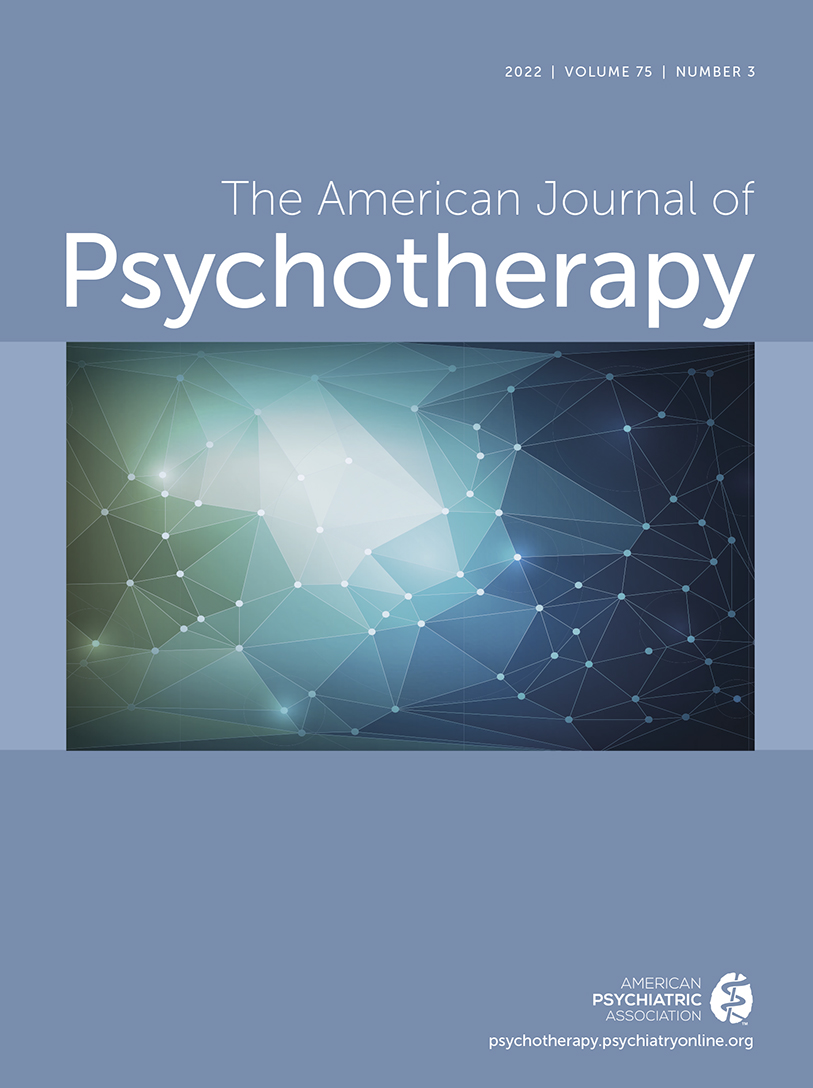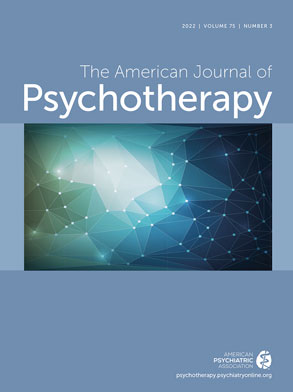“Supportive psychotherapy” is a hoary term with many definitions, most of them pejorative. The term originated as a description of the lesser therapy offered to patients who could not tolerate psychoanalysis: in effect, a “second-class” therapy for “second-class” patients (
1). From a psychoanalytic vantage, supportive therapy encompasses any noninterpretative talking therapy, including cognitive-behavioral therapy (CBT) (
2), interpersonal psychotherapy (IPT) (
3), and some psychodynamic psychotherapies (
4–
7). Supportive therapy has been variously viewed as hand-holding, unqualified positive regard, and an attempt to strengthen organizing defenses. Although it has been characterized as the most common psychotherapy in everyday practice (
8) (admittedly predating the dominance of CBT), what the term actually means in community treatment is vague.
One option frequently chosen as a less active comparator has been supportive psychotherapy. In comparative psychotherapy trials, even with independent evaluators blinded to treatment type assessing patients, the investigator’s favored treatment tends to have an advantage unless study design and researcher allegiance are carefully balanced. This has too rarely occurred (
12). Supportive therapy, lacking the bells and whistles of more elaborate, manualized therapies, has often been used as an unmanualized, poorly characterized comparison condition. Researchers have too often employed the same therapists to conduct both their favored treatment and the supportive therapy comparison, claiming this design controls for “therapist factors,” while ignoring the glaring problem that therapists may be hired for superior skill in and allegiance to the researcher’s preferred treatment. One research group (
13) candidly admitted, “All [study therapists] were CBT-oriented therapists, and this may have biased the treatment in favor of CBT, as the therapists were requested to use [supportive therapy] methods they judged as noneffective.”
Despite these handicaps, supportive therapy has generally fared well in trials, generating the feared “dead heat” outcome: the favored treatment benefits patients yet performs no better than does the ignoble control. Under the circumstances, we can conclude that this relatively unloved therapy has potency.
In the early 1990s, Dr. Michael Sacks and I, with input from Drs. Allen Frances and Lawrence Jacobsberg, manualized a nondirective, affect-focused, common-factors brief supportive psychotherapy (BSP) as a comparison condition in a randomized controlled trial (RCT) for treatment of depression among HIV-positive patients at Cornell University Medical College (
14). Unwilling to offer pill placebo to patients with depression and a then deeply stigmatizing, lethal, and essentially untreatable medical illness, we sought to provide a relatively constrained, affect-focused control condition for comparison with IPT and pharmacotherapy for depression. BSP has since been studied in other RCTs.
BSP (
15) is time limited. Patients set the agenda. Therapists pursue affect, encouraging patients to recognize and tolerate feelings, particularly negative affects such as anger, disappointment, and anxiety. Unlike IPT (
3), BSP includes no overt attempt to encourage the patient to explore options for expressing that affect to change relationships. Rather, it is anticipated that the patient, once comfortable with the feelings, may spontaneously express them. Relatively unstructured, without homework or exposure exercises, BSP facilitates psychotherapy common factors inherent in all effective therapies, such as encouraging affective arousal, helping patients feel understood, and offering optimism for improvement (
15,
16).
Discussion
BSP is an active treatment. It has never had the luxury of an open trial, nor comparison to a waiting list or other weak comparator, which might have yielded dramatic effect sizes. Still, its pre- to posttreatment effect sizes have been large. Targeted disorders have included chronic depression, which has low placebo response and relatively low response rates to active treatments. Thus, BSP has always faced strong, proven competition, treating difficult disorders, yet generally has held its own. BSP has been champion of the dead heat noninferior outcome.
BSP did not show advantages over fancier or more targeted therapies, but it generally matched them. This review was limited in that it included only nine trials, four of which were underpowered pilot studies. Nonetheless, BSP never performed poorly, despite treating difficult, chronic conditions against tough competitors. This outcome concords with the general psychotherapy research assertion that psychotherapy common factors, the use of which BSP exemplifies, account for at least half of treatment outcome, making it difficult to show differences between well-conducted active psychotherapies (
38).
BSP is not the only research-tested supportive psychotherapy. In what constitutes perhaps the first real psychotherapy study (in the 1950s), the prediagnostic Menninger Project compared psychoanalysis, expressive psychoanalytic psychotherapy, and supportive psychoanalytic psychotherapy in the treatment of 42 patients. Results indicated the potency of the least favored supportive psychotherapy approach and the difficulty in separating it from expressive psychotherapy (
39). Wallerstein (
39) concluded, “The supportive aspects of all psychotherapy . . . must be specified more respectfully in all its forms than it has been in the psychodynamic literature.”
The largest (N=134) psychotherapy RCT for patients with comorbid major depression and breast cancer (
40) compared 12 sessions of cognitive-behavioral problem-solving therapy, IPT, and a time-limited supportive psychotherapy. Supportive therapy was defined as “an active treatment that uses techniques such as clarification, suggestions, praise, reassurance, normalization, and rehearsal and anticipation to promote a supportive patient-therapist relationship, enhance the patient’s strengths and ability to use environmental supports, reduce distress and behavioral dysfunction, and maximize autonomy” (
40). This approach was derived from the supportive psychotherapies of Pinsker (
5) and Novalis et al. (
7), not the BSP manual. Supportive therapy was the presumed control condition for two more active interventions. In fact, HAM-D scores fell from 19 to 12 across treatments—another dead heat (
40).
Similarly, a year-long RCT comparing Kernberg’s transference-focused psychodynamic psychotherapy, dialectical behavioral therapy (DBT), and dynamic supportive psychotherapy based on the approach of Rockland (
4) for 90 patients with borderline personality disorder found that all treatments equally improved depression, anxiety, global functioning, and social adjustment (
41). In secondary analyses, supportive therapy was less likely than the competitors to reduce suicidality but was more likely than DBT to improve anger symptoms. Transference-focused therapy and supportive therapy both reduced impulsivity (41)—yet another dead heat, wherein supportive therapy matched brand-name psychotherapies.
Rosenthal and colleagues (
42) looked at pilot findings using an unspecified (perhaps Pinsker’s) supportive psychotherapy, finding interpersonal improvement among the 60% of the 20 patients with cluster C personality disorder who completed the 40-session treatment. Luborsky (
6) wrote the first manual of supportive and expressive psychotherapy, which has since been tested in several trials, with sometimes promising outcomes (
43).
It is unclear how BSP compares to these other supportive therapies in efficacy. The current review ignored numerous sham studies that offered “supportive therapy” as a loose, nonmanualized control condition for favored psychotherapies or in which the therapists skilled in the favored therapy—which they daily practiced and believed in—also conducted the afterthought “supportive therapy” control condition (
12).
In a meta-analysis of 31 studies, including some BSP trials, Cuijpers and colleagues (
44) found that various forms of “nondirective supportive therapy” effectively treated depression among adults, with no differences relative to other psychotherapies when the analysis was controlled for researcher allegiance. The meta-analysis (
44) concluded that nondirective supportive therapy “has a considerable effect on symptoms of depression.”
This finding returns us to the longstanding research question of what constitutes an appropriate psychotherapy control. Some have been too weak: waiting lists are inadequate and perhaps unethical for diagnoses having effective treatments. “Treatment as usual” is highly variable and not replicable. By contrast, a treatment as active as BSP is a killer control, knocking out budding therapies of potential promise. Unfortunately, dead-heat trials derail further exploration of potentially valuable therapies. As funding for psychotherapy research has always been scarce, even in more generous times (
45), any experimental treatment that cannot beat the control condition loses funding. One negative trial means game over. Thus, BSP ended IPT as a treatment for dysthymia and for depression-panic spectrum and, for a time, CBASP.
Hence, it may be premature to use BSP as a comparative condition in phase II psychotherapy treatment development (i.e., for therapies that are just beginning to be evaluated). Rather, BSP should be reserved as an active comparator to more rigorously tested therapies that have already shown promise against weaker competition. Exactly what that weaker competition should be remains an unsolved question.
So BSP works. Focusing on stripped-down psychotherapy common factors makes BSP a powerful comparator, daring investigators to demonstrate that their treatments can exceed those common factors. Studies suggest a 10%–15% advantage for specialized therapies in specialized circumstances, but at least 50% of psychotherapy outcome derives from common factors (
38).
Beyond the science, why does BSP matter? It defines a skillful, elemental psychotherapeutic approach. Therapists we have trained (
24,
46), and many patients they have treated, begin unsure of what they are encountering. By the end, they are generally impressed. BSP, its manual finally published (
15), may have a role in clinical practice, providing therapists with an organized, controlled template for evoking emotion and honing their affect focus both in supportive and other forms of psychotherapy.

